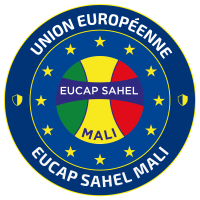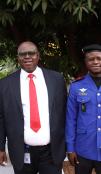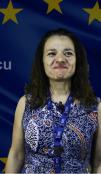THE ROLE OF WOMEN IN THE CRISIS IN MALI ON 8 MARCH

As a prelude to the celebration of International Women's Day, EUCAP Sahel Mali and the Geneva Centre for Security Sector Governance (DCAF) organised a “citizen café” with female personnel from Mali's Internal Security Forces (ISF). Held at the Ecole de Maintien de la Paix in Bamako, the "World Café" or "citizen café" brought together some sixty participants from the ISF and civil society to discuss the role of women in the crisis in Mali. The main aim was to raise awareness of the role of women in security and gender mainstreaming within the ISF.
Maja Sverdrup, EUCAP Deputy Head of Mission, praised the achievements of the women and girls of Mali and encouraged the participation and representation of women within the ISF.
"There is already a political will to take gender into account within the ISF, and progress is being made," added Safiatou Diallo, representative of the head of the DCAF office in Mali.
The participants in this exchange session encouraged and welcomed the joint initiative of EUCAP and DCAF. Among them was Mr. Lassina Coulibaly, a member of the Security Sector Reform network. Mr. Coulibaly urged the men to participate in the exchange to understand the very concept of gender: "I learned a lot. When people talked to me about gender in the past, as a man I felt left out. I now understand that we all need to get involved and that women have an important role to play in resolving this crisis”.
"EUCAP and DCAF give us a great deal of support in building women's capacities in various areas. This workshop has brought together female staff from the security forces and civil society. This framework enables us to talk to each other, especially within the Forces. There are different ranks and the most senior has access to certain information that others don't have. So, it's a place where we can talk to each other, discuss our challenges and, above all, what we can do together," added one of the participants.
Panels chaired by the gender focal points of the National Police, the National Gendarmerie and the Civil Protection Service provided an opportunity to capitalise on the integration and well-known contribution of women in the field of security. The participants also discussed the issue of better integration, access to more positions of responsibility and, above all, raising public awareness of the need for women in the ISF.





